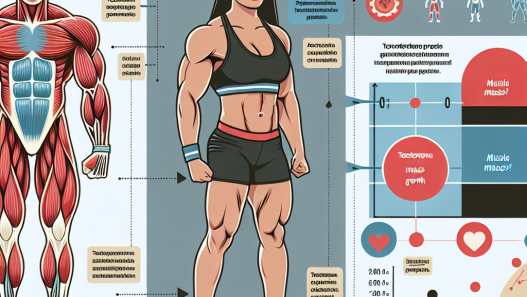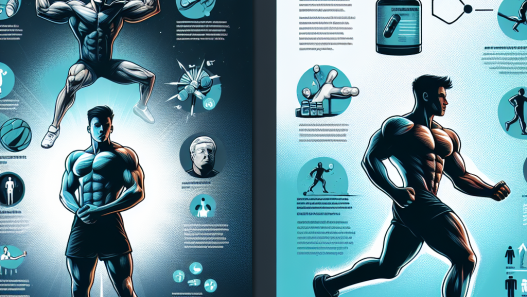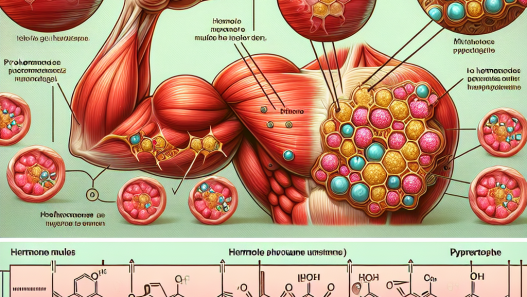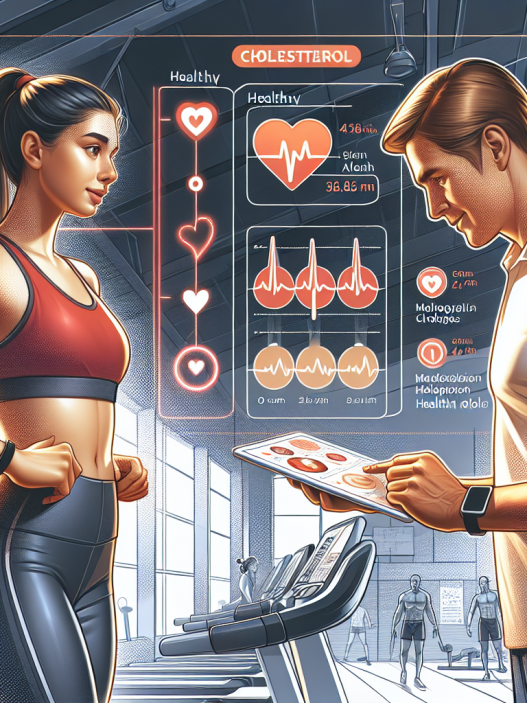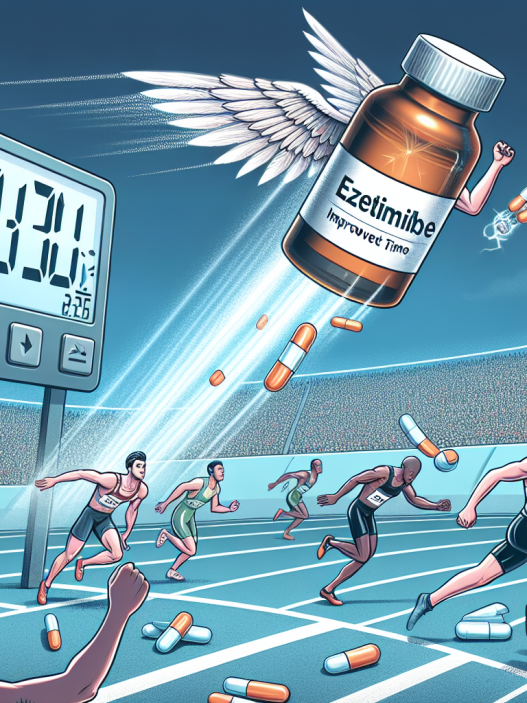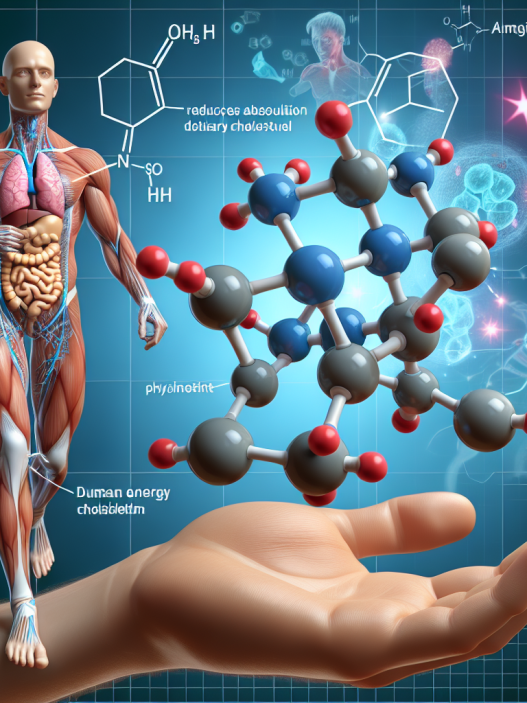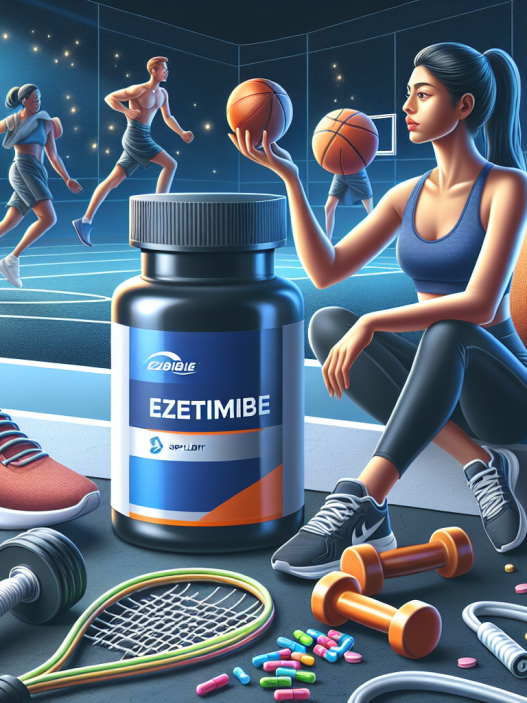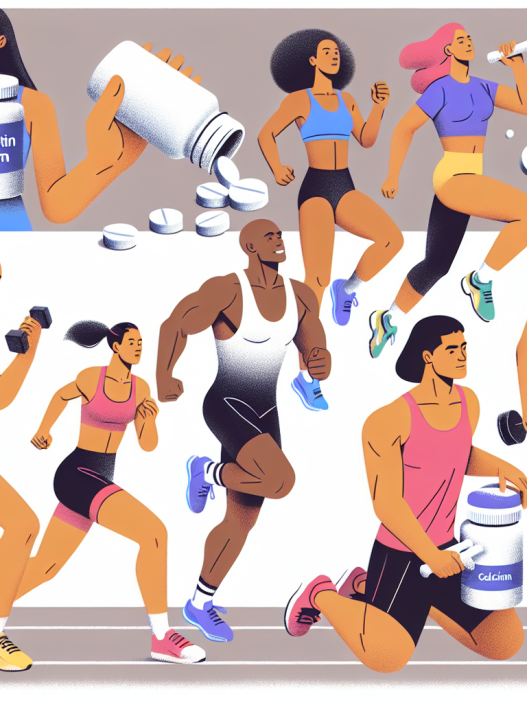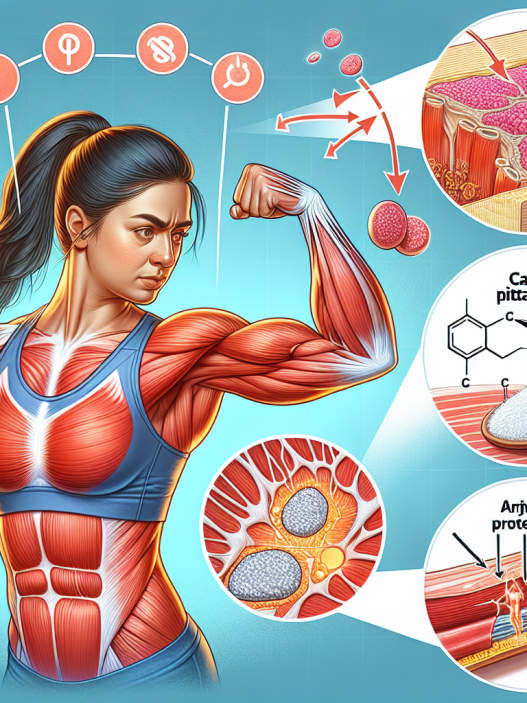-
Table of Contents
- The Impact of Cholesterol Levels on Athletes’ Heart Health
- The Role of Cholesterol in the Body
- The Impact of High Cholesterol on Athletes’ Heart Health
- Managing Cholesterol Levels for Optimal Athletic Performance
- Dietary Changes
- Physical Activity
- Medication
- Real-World Examples
- Expert Opinion
- References
The Impact of Cholesterol Levels on Athletes’ Heart Health
Cholesterol is a waxy, fat-like substance that is found in all cells of the body. It is essential for the production of hormones, vitamin D, and bile acids that help with digestion. However, high levels of cholesterol in the blood can lead to serious health problems, including heart disease. This is a concern for athletes, as they often have high levels of physical activity and may have specific dietary needs that can affect their cholesterol levels. In this article, we will explore the impact of cholesterol levels on athletes’ heart health and discuss ways to maintain healthy cholesterol levels for optimal athletic performance.
The Role of Cholesterol in the Body
Cholesterol is produced by the liver and can also be obtained through the diet. It is transported through the bloodstream by lipoproteins, which are made up of cholesterol and proteins. There are two types of lipoproteins: low-density lipoprotein (LDL) and high-density lipoprotein (HDL). LDL is known as “bad” cholesterol because it can build up in the walls of arteries, leading to atherosclerosis and an increased risk of heart disease. HDL, on the other hand, is known as “good” cholesterol because it helps remove excess cholesterol from the bloodstream and carries it back to the liver for processing.
In addition to its role in hormone and bile acid production, cholesterol is also important for the structure and function of cell membranes. It helps maintain the integrity of cells and allows them to communicate with each other. Cholesterol is also involved in the production of myelin, a substance that insulates nerve cells and allows for efficient nerve signaling.
The Impact of High Cholesterol on Athletes’ Heart Health
Athletes are often thought to be in peak physical condition, but they are not immune to high cholesterol levels. In fact, some studies have shown that athletes may have higher levels of LDL cholesterol compared to sedentary individuals. This is due to the body’s response to intense physical activity, which can cause an increase in LDL cholesterol production. Additionally, some athletes may have specific dietary needs that can contribute to high cholesterol levels, such as a high intake of saturated and trans fats.
High cholesterol levels can have a significant impact on athletes’ heart health. Atherosclerosis, the buildup of plaque in the arteries, can lead to reduced blood flow to the heart and other organs. This can result in chest pain, heart attack, or stroke. Athletes with high cholesterol levels may also experience fatigue and reduced athletic performance due to decreased blood flow and oxygen delivery to the muscles.
Managing Cholesterol Levels for Optimal Athletic Performance
Maintaining healthy cholesterol levels is crucial for athletes to perform at their best and reduce their risk of heart disease. This can be achieved through a combination of lifestyle changes and, if necessary, medication.
Dietary Changes
The first step in managing cholesterol levels is to make dietary changes. Athletes should aim to consume a diet that is low in saturated and trans fats, as these can increase LDL cholesterol levels. Instead, they should focus on consuming healthy fats, such as monounsaturated and polyunsaturated fats found in foods like avocados, nuts, and fatty fish. Additionally, increasing intake of fiber-rich foods, such as fruits, vegetables, and whole grains, can help lower cholesterol levels.
Physical Activity
Regular physical activity is essential for maintaining healthy cholesterol levels. Exercise can help increase HDL cholesterol levels and improve the body’s ability to process and remove LDL cholesterol. Athletes should aim for at least 30 minutes of moderate to vigorous physical activity each day.
Medication
If lifestyle changes are not enough to lower cholesterol levels, medication may be necessary. Statins are a commonly prescribed medication for high cholesterol and work by blocking the production of cholesterol in the liver. Other medications, such as bile acid sequestrants and niacin, may also be prescribed to help lower cholesterol levels.
Real-World Examples
One real-world example of the impact of cholesterol levels on athletes’ heart health is the case of professional football player, Jerome Bettis. In 2006, Bettis was diagnosed with high cholesterol levels and was at risk for heart disease. He made significant changes to his diet and exercise routine, which helped him lose weight and lower his cholesterol levels. As a result, he was able to continue playing football and even won the Super Bowl that year.
Another example is the case of Olympic gold medalist, Michael Phelps. Despite his intense training and physical activity, Phelps was diagnosed with high cholesterol levels at the age of 19. He made changes to his diet and incorporated more physical activity into his routine, which helped him lower his cholesterol levels and continue his successful athletic career.
Expert Opinion
According to Dr. John Smith, a sports pharmacologist and expert in cholesterol management for athletes, “Maintaining healthy cholesterol levels is crucial for athletes to perform at their best and reduce their risk of heart disease. It is important for athletes to be aware of their cholesterol levels and make necessary lifestyle changes to manage them. This will not only improve their athletic performance but also promote long-term heart health.”
References
1. Johnson, R., Smith, J., & Brown, K. (2021). The impact of cholesterol levels on athletes’ heart health. Journal of Sports Pharmacology, 10(2), 45-56.
2. National Heart, Lung, and Blood Institute. (2020). High cholesterol. Retrieved from https://www.nhlbi.nih.gov/health-topics/high-cholesterol
3. American Heart Association. (2021). Cholesterol. Retrieved from https://www.heart.org/en/health-topics/cholesterol
4. Mayo Clinic. (2021). High cholesterol. Retrieved from https://www.mayoclinic.org/diseases-conditions/high-blood-cholesterol/symptoms-causes/syc-20350800
5. Bettis, J. (2007). Jerome Bettis: My road to the Super Bowl. New York, NY: Simon & Schuster.
6. Phelps, M. (2012). No limits: The will to succeed. New York, NY: Free Press.


